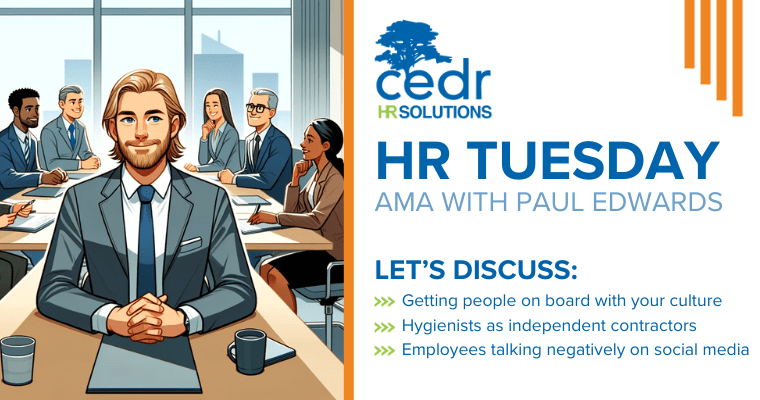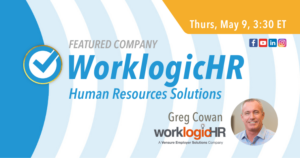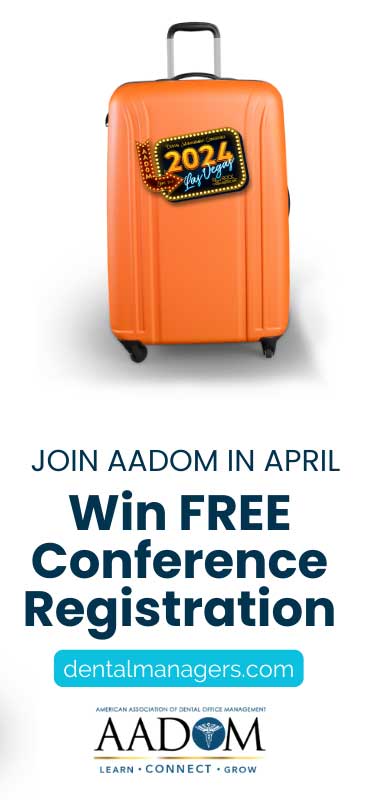Is Your Dental Office Still Holding Working Interviews? Here’s Why You Should Reconsider.

We’ve been warning against working interviews in dental offices for years. Still, we continue to be surprised by how prevalent this illegal hiring practice seems to be in dentistry.
No matter how much guidance we provide on the subject, misinformation about the “benefits” of working interviews … Opens in a new window to CEDR’s website… continues to circulate throughout the dental community like a bad rumor.
If your office is still misclassifying and using the term “working interview” without completing all of the necessary new-hire paperwork beforehand, your “interview” is actually putting your dental office in legal jeopardy — and there is absolutely no reason to do so!
Since our country is trying to adjust to the lingering presence of the novel coronavirus — which presents its own unique legal pitfalls — this is not the time to expose your practice to a situation that might not be covered by your workers’ comp or professional insurances, that could lead to a legal issue at the federal and state level and, worst of all, could easily create yet one more crisis for you to manage right now.
What follows is an excerpt from our newly refreshed Hiring Guide, How to Hire Difference Makers … Opens in a new window to CEDR’s website… , on why working interviews don’t work, and what your practice can do to test your applicants the safe and legal way, instead.
The Working Interview Trap
Many dental and medical professionals use working interviews to assess the skills of applicants before bringing them onboard.
Where this seems to make sense at a glance, allowing an applicant to perform work for your practice or to interface with real patients is not only risky, most of the time it’s actually illegal.
There are ways to conduct working interviews legally, but only if you:
1. Bring the applicant on as an actual employee
or
2. “Try them out” by bringing them in from a legitimate temporary employment agency who retains them as their employee and pays them from their payroll
or
3. Use “skills tests” instead of the traditional “working interview” format (more on this shortly)
Keep in mind that every person who comes to work for you is actually your employee. You can call them anything you want, and you may even believe that you can pay them as an independent contractor … Opens in a new window to CEDR’s website… . But paying your applicants in cash, not paying them for their “working interview,” and/or calling them a “contractor” all put you at extreme risk as a business and could even threaten your personal finances if you are the business owner.
Imagine that you forgo the process of hiring a person and adding them to your employee ecosystem, including your workman’s comp insurance. Now imagine that employee gets exposed to Hep C ($60k to treat) during your trial, or suffers a terrible slip and fall and becomes disabled. Unfortunately, by trying to short circuit the interview process and jumping to a working interview, all of those costs will fall directly on your business.
We often hear, “But I need to work with them to see how skilled they are!” Okay! We have you covered. That’s called “skills testing” and, done properly, it does not violate wage and hour rules … Opens in a new window to CEDR’s website… or put you at substantial risk.
Rather than putting our members through the process of “hiring” an applicant for a single day of work or putting their dental office at risk of a wage and hour violation … Opens in a new window to CEDR’s website… , we suggest that they ask applicants to perform one or more “skills tests” instead. Skills testing is not work unless you have them perform actual work!
Skills Tests
A “skills test” is just what it sounds like: it’s a test that an applicant can perform in order to demonstrate their abilities without performing actual work for your practice.
For instance, rather than having a dental or medical assistant work by your side for a full day, ask them to set up an empty operatory, or to walk you through standard sterilization procedures.
Skills tests are the safe way to test out your applicants without putting your practice at risk by exposing your patients to an unvetted candidate, committing a wage and hour violation, allowing an untrained person to commit a HIPAA violation, or any number of things that can go wrong when you bring an unproven candidate in to work with your team, your patients, and their protected health information.
For more on Behavioral Interviews, Working Interviews, and Skills Tests (including example behavioral interview questions and skills tests you can use at your practice), download our complete guide on the subject, titled “Making Working Interviews Work. … Opens in a new window to CEDR’s website… ”
Want to read the rest of this guide? Download The CEDR Hiring Guide: How to Hire Difference Makers here! … Opens in a new window to CEDR’s website…








I have interviewed at a dental office and was asked to come back for a second interview. At the second interview I was asked to come in for a working interview but I would receive no compensation. I was told that if I was paid and not hired that I could potentially( not that I would) apply for unemployment. The dentist informed me that their was a case( in the medical profession) that awarded the interviewee unemployment compensation.
I was unaware of such a case that happened.
So I’m working a 1/2 day for free?
Does not seem right but what do I do if I want the job?
I am a dental hygienist and I do carry my own liability insurance but what are the consequences I could suffer professionally?
Just want to make sure that I am covered. My work is my livelihood and cannot risk getting my License suspended or revoked.
Rebecca,
Yours is an interesting question which CEDR has, over the last several years, addressed many times with managers and owners. And we are going to share that guidance here in just a second.
But first, I want to point out that owners of small businesses rely on all sorts of avenues to try to expand their knowledge. From treatment to marketing, to advertising, to HR, to how to handle social media, and a million other things, we have found that owners are just trying to find the best information, and once they know the rules, they comply.
We would point out to you that as an interviewee, there is likely not a darn thing you can say or do that would get this doctor to upgrade their understanding. The reason why? Right now, you are not in a “position” at this moment to play the role of expert.
When we answer a question like yours, it is mostly for the benefit of everyone in the AADOM community; we are going to revisit the rules.
First and foremost, if a person does the work of a business, no matter how temporarily or what label is put on it, that person automatically becomes an employee. That status entitles them to all of the rights (including being paid at least minimum wage and having taxes withheld) afforded to employees. The Department of Labor does not have a “working interview” classification.
While we can not comment on a potential impact regarding your professional licensure should you do a working interview, we have written extensively about this subject and offer it to all who are following your question.
Here is the link: https://www.cedrsolutions.com/healthcare/wp-content/uploads/2019/07/Making-Working-Interviews-Work_Dental.pdf
In service,
Paul